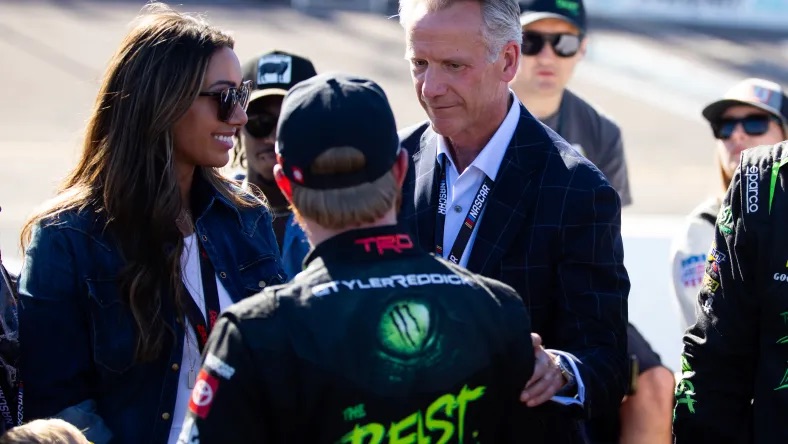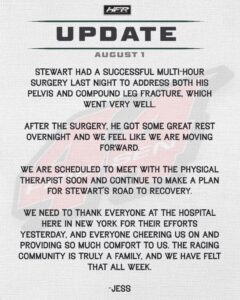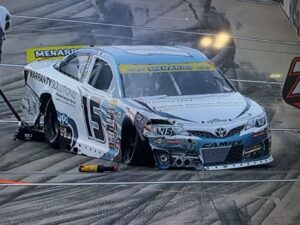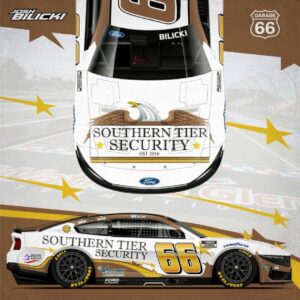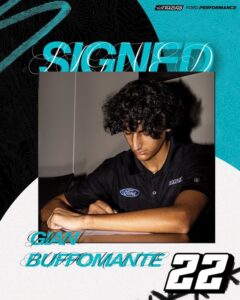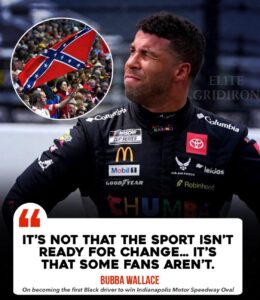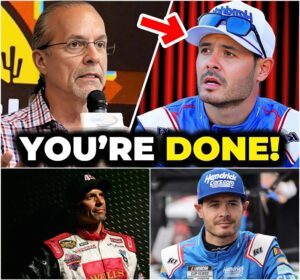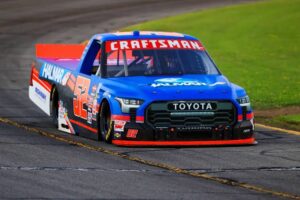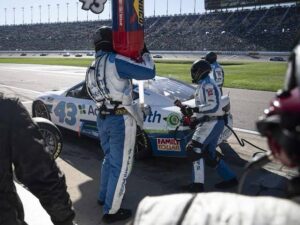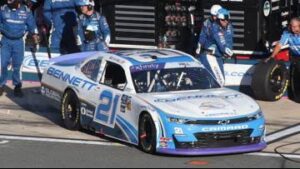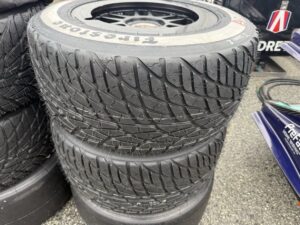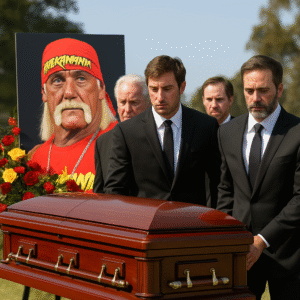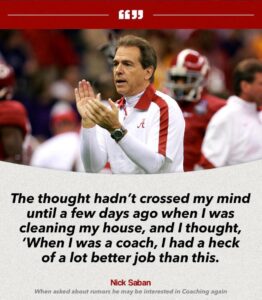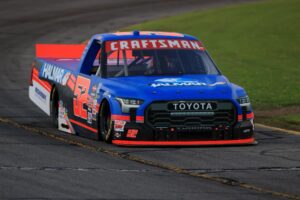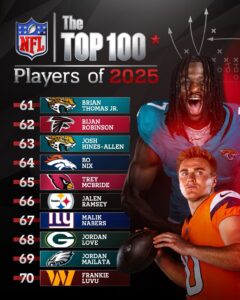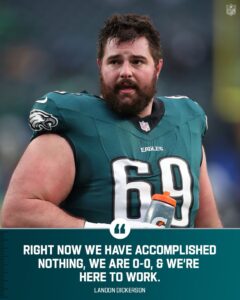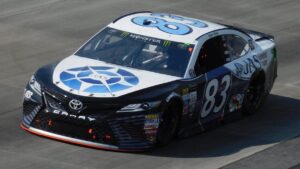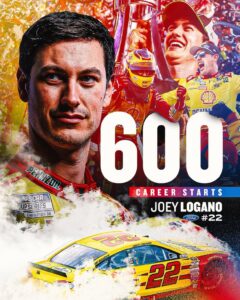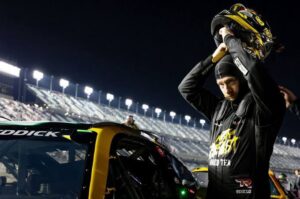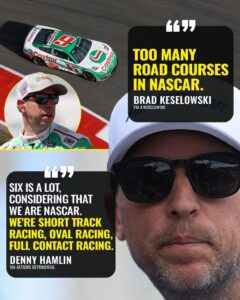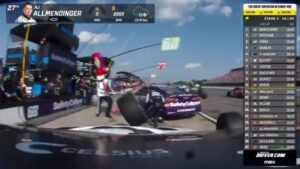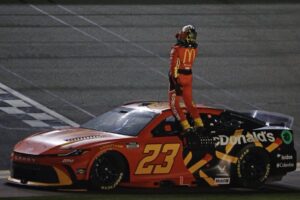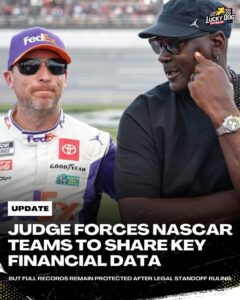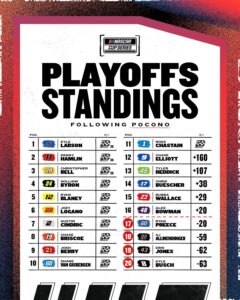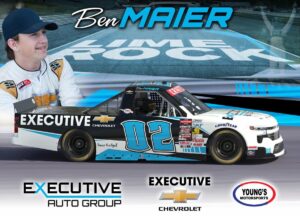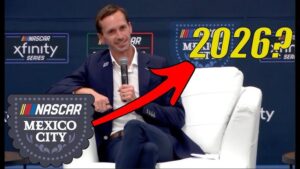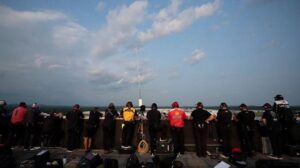A legal battle over one of NASCAR’s most valuable assets—charters—has taken a dramatic turn as NASCAR moves to strike a request for a court-ordered transfer of Stewart-Haas Racing’s charter. The dispute, involving 23XI Racing, Front Row Motorsports, and Stewart-Haas Racing, highlights the complexities of the charter system and its growing importance in the sport.
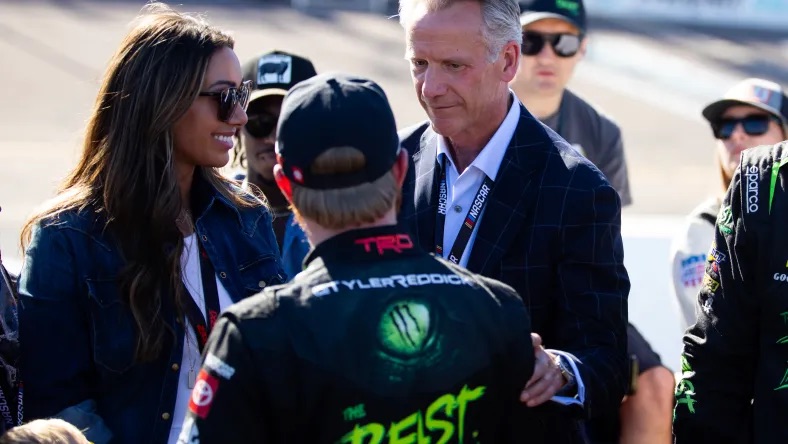
The Controversy
The case stems from a request made by 23XI Racing and Front Row Motorsports for a court to force Stewart-Haas Racing (SHR) to transfer one of its charters. Charters, which guarantee entry into NASCAR races and a share of the revenue, have become highly sought after as the sport grows in popularity.
23XI Racing, co-owned by NBA legend Michael Jordan and NASCAR driver Denny Hamlin, is reportedly seeking to secure additional long-term stability by acquiring another charter. Front Row Motorsports, a mid-sized team, is said to have aligned with 23XI in this effort, citing shared interests in addressing competitive equity and accessibility in the charter market.
The request argues that Stewart-Haas Racing, which currently operates four charters, has failed to meet certain performance criteria, making the forced transfer a valid and necessary action under the rules.
NASCAR’s Motion to Strike
In response, NASCAR has filed a motion to strike the request on procedural grounds, asserting that the teams have overstepped their authority. NASCAR argues that disputes involving charters should be handled internally, per the NASCAR Rule Book, and not in a courtroom.
The organization also contends that allowing a court-ordered transfer could set a dangerous precedent, undermining the charter system’s stability and creating chaos among teams. NASCAR’s legal team emphasized the importance of maintaining autonomy over charter-related decisions to protect the sport’s governance structure.
Teams Present Precedent
In their counterarguments, 23XI Racing and Front Row Motorsports have presented evidence of past charter-related disputes being resolved through external legal means. They claim that precedent exists for judicial intervention when internal mechanisms fail to address disputes adequately or equitably.
Furthermore, the teams argue that Stewart-Haas Racing’s alleged underperformance and failure to maximize the use of its charter negatively impact the competitive balance of the sport. By reallocating the charter to more competitive teams, they assert, NASCAR could enhance the quality of its races and better serve its fanbase.
The Bigger Picture
This legal battle underscores the growing significance of charters in NASCAR’s ecosystem. Introduced in 2016, the charter system was designed to provide teams with financial stability and long-term value. However, as the sport has evolved, the scarcity of charters and their skyrocketing market value have led to tensions among teams vying for competitive advantages.
For 23XI Racing, which has quickly risen as a competitive force, acquiring another charter would solidify its status in the sport. For Front Row Motorsports, the case represents an opportunity to advocate for smaller teams in a system that often favors established powerhouses like Stewart-Haas Racing.
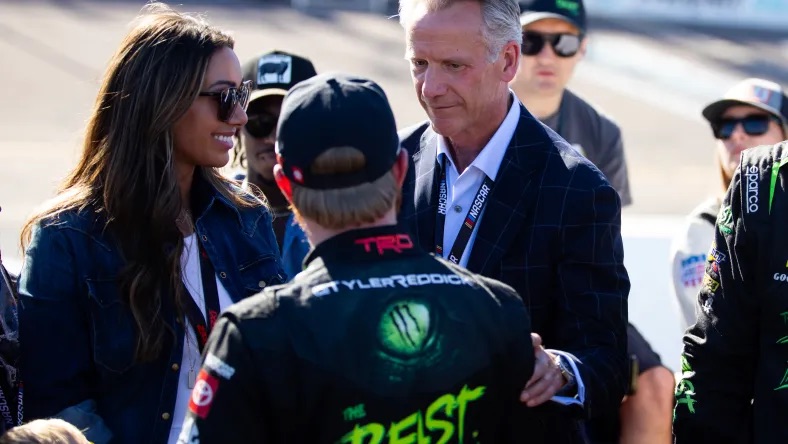
What’s Next?
The court’s decision on NASCAR’s motion to strike will likely set the tone for the future of charter disputes. If NASCAR succeeds, it could reaffirm the sport’s internal governance and deter future legal challenges. However, if the case proceeds, it may open the door to more external scrutiny of NASCAR’s charter system.
With high stakes for all parties involved, this battle could reshape the charter system and the balance of power in NASCAR. Teams, fans, and stakeholders alike are closely watching as this legal drama unfolds, with potential implications for the sport’s future.
